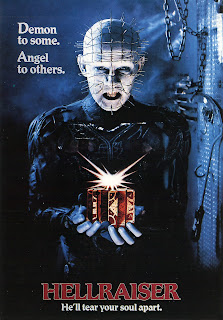On the CB
This is the first Sam Peckinpah movie that I’ve ever seen in my life and it was a childhood favorite of mine. The movie was often shown on TV here when I was young, but what made it a favorite was also the fact that I’ve pretty much grown up around truck drivers. Three of my uncles drove trucks at one point of their life or another (one of them still does actually). So I always had a love for these huge powerful machines, and for me “Convoy” captured what it meant to be a truck driver on the road. I however haven’t seen the film in almost 20 years now, so watching it last night was quite a nostalgia trip.
But although this is a very enjoyable film and goes surprisingly well with “Vanishing Point” and “Two-Lane Blacktop” since it gives a rebellious middle finger to authority and portrays life on the road, but from the working man's perspective - a trucker's perspective with all the CB vocabulary and everything. It is also the weakest film of the three and quite probably the weakest Sam Peckinpah film I’ve written about so far. Which is no big deal to be honest since I never expected “Convoy” to be a masterpiece, all I expected was a fun and cool movie and that is exactly what I got.
However, even though the production of “Convoy” was very troubled and Peckinpah struggled with alcoholism and illness through most of it, this still feels very much like a Peckinpah movie. Sure you can also describe it as a cheap cash-in on the success of “Smokey and the Bandit”, but this film has way more heart than “Smokey” can even think of. What “Convoy” does great for an action road movie is that, while the thrills and laughs are preserved, it still has those small human moments. Like the exchanges between Duck (Kris Kristofferson) and his waitress girlfriend. There’s real tenderness and honesty there. Although this is also a woman that Duck forgets the second he drives off with his truck, and a woman that by the end of the film gets completely replaced with Ali MacGraw. Oh Sam…
Anyway, the stunts and effects in this film are wonderful and thrilling. Trucks flip over, cars run through barns and at one point half a town gets demolished by the convoy. And then there’s the convoy itself – an ever growing row of trucks on the highway that in the later parts of the film seems quite endless. But although the film has a rebellious message it never gets bogged down by it nor does it ever veer off in to some moralistic lecturing.
There is however thematic consistency with other Peckinpah films as “Convoy” romanticizes the outlaw, is very anti-establishment and the huge trucks are not only big phallic symbols of masculinity and male dominance but also a symbol of freedom. They scream “land of the free and home of the brave” which makes it kind of funny that the film was immensely popular in the east-European communist countries at the time of its release. I guess that the “working man uprising against an oppressive authority figure” storyline spoke to the reds as well.
As I said at the start of this post there is a lot of deep-rooted nostalgia for me when this film is concerned, so this write-up is probably a horrible reflection of the film itself as I seem to be completely and utterly unable to point out the major flaws in it (and I’m sure there’s quite a few). But I am being nothing but absolutely honest when I say that I had a blast while watching it last night.
Cast:
Kris Kristofferson - Rubber Duck
Ali MacGraw - Melissa
Ernest Borgnine - Sheriff Lyle Wallace
Burt Young - Pig Pen
Franlyn Ajaye - Spider Mike


















































